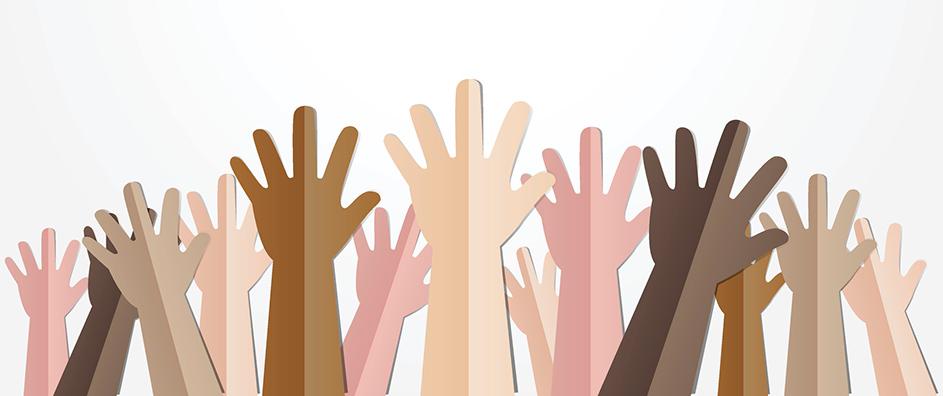The Bahá’í teachings, rooted in principles of unity, justice, and equality, offer a profound framework for addressing systemic issues such as prejudice, hatred, and racism. At the heart of these teachings lies a fundamental recognition of the oneness of humanity. This principle necessitates not merely tolerating differences but actively cultivating an inclusive and harmonious society. This article endeavors to unpack the Bahá’í perspective on these critical societal issues while exploring the underlying motivations and implications of their teachings.
At the core of the Bahá’í faith is the assertion that humanity is a single family. This poignant notion serves as a cornerstone for understanding the Bahá’í approach to unraveling the deeply entrenched vines of prejudice that pervade societies worldwide. Prejudice, in its myriad forms, stems from ignorance—ignorance not only of the other but also of one’s own innate relationships with fellow human beings. The Bahá’í teachings advocate for education as a paramount means of eradicating ignorance, thus fostering a more comprehensive understanding of diversity.
The first stride towards rooting out prejudice involves acknowledging and embracing the pluralism inherent in humanity. The Bahá’í writings postulate that recognizing the diversity of cultural, ethnic, and social backgrounds enriches human experience rather than diminishes it. This embrace of diversity is critical; it compels individuals to transcend superficial differences that often breed animosity and conflict. Each person contributes uniquely to the collective tapestry of humanity, an idea that is often overlooked in societies that favor homogeneity over heterogeneity.
Discrimination—whether based on race, gender, or any other social identifier—emerges not just from differentials of power, but also from an internal refusal to acknowledge the inherent worth of all individuals. The Bahá’í teachings profoundly illustrate that the perception of superiority or inferiority is a construct that must be dismantled. Acknowledging the spiritual reality of the oneness of humankind demands that individuals confront their biases and work diligently towards self-reflection and personal transformation.
Moreover, the Bahá’í approach to social justice leans heavily on collective action. Institutionalized racism and systemic hatred require collective responses to induce meaningful change. The teachings call upon communities to engage in dialogue that promotes understanding and dismantles barriers to unity. This collective endeavor nurtures the development of a shared vision—one that honors the dignity of every individual and works towards the betterment of society as a whole.
Inherent in the Bahá’í perspective is the recognition that love and compassion are potent remedies against hatred. The practice of genuine affection for others is pivotal in cultivating an environment where prejudice cannot thrive. By fostering meaningful relationships across demographic divides, individuals can gradually dispel long-held beliefs that sustain hatred and discrimination. Through such interactions, the seeds of empathy are sown, leading to profound shifts in perspective and understanding.
The Bahá’í teachings encourage an examination of the role of language in perpetuating prejudice. Language is a powerful tool, and the words we choose can either foster division or encourage solidarity. The paradigm shifts initiated through inclusive and respectful dialogue help to reshape narratives around race and identity. Bahá’ís are urged to practice careful and conscious communication, thereby reframing discussions that have historically been mired in bias and hostility.
Education, particularly moral and ethical education, takes a central role in the Bahá’í plan for rooting out prejudicial thinking. Educational initiatives within the Bahá’í community focus on advocating for justice, equality, and the ethical treatment of all individuals. From an early age, children are taught the principles of universal peace, justice, and equality, facilitating the emergence of a generation better equipped to champion the rights of all and foster solidarity in diversity.
This holistic approach to education serves a dual purpose. It not only illuminates the pernicious effects of prejudice and racism but also equips individuals with the tools necessary to be proactive agents of change. In promoting critical thinking and empathy, educational frameworks aligned with Bahá’í principles empower individuals to challenge discriminatory practices within their communities, ultimately contributing to a more equitable society.
Practically, the application of Bahá’í teachings in addressing prejudice and racism can manifest in various forms. Local community engagements, interfaith dialogues, and collaborative social projects serve as platforms for promoting a commitment to diversity and inclusion. These initiatives allow individuals to partake in the transformative process of understanding and respecting differences, thereby cultivating a stronger sense of community interconnectedness.
Ultimately, the journey towards rooting out prejudice, hatred, and racism is both collective and deeply personal. The Bahá’í teachings provide a robust framework for individuals and communities alike to pursue these ideals actively. By fostering an understanding of our shared humanity and recognizing the inherent dignity in every individual, a society built on justice, love, and unity can be realized. This aspiration is not merely an ideal; it is a necessary evolution in the human story, one that propels us towards a future devoid of prejudice and rich in harmony.
